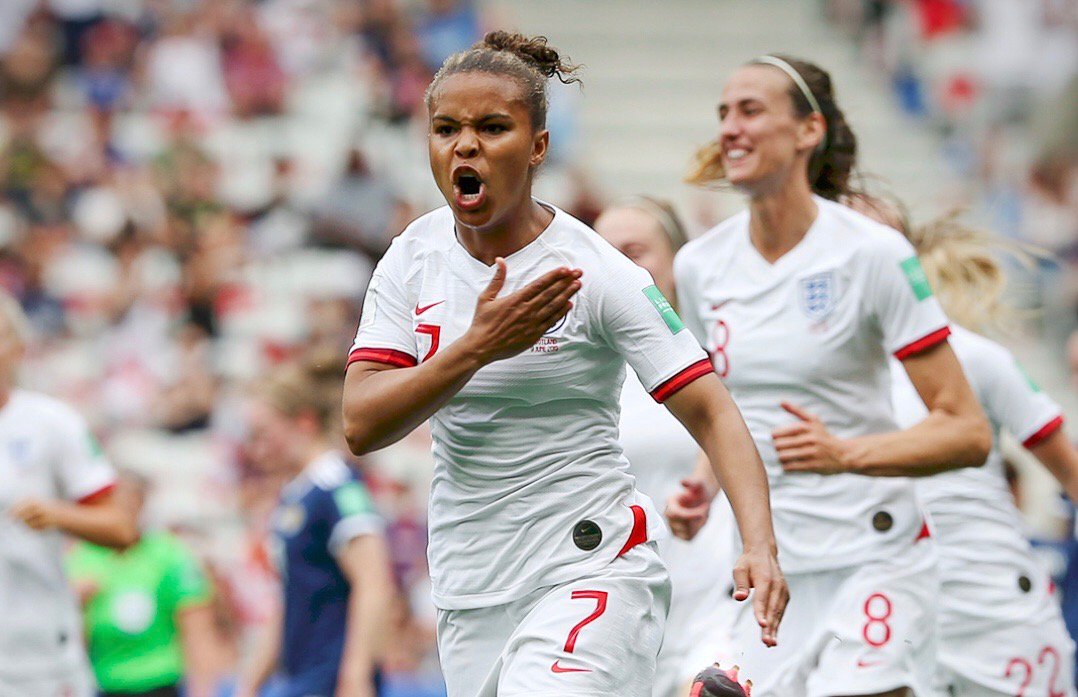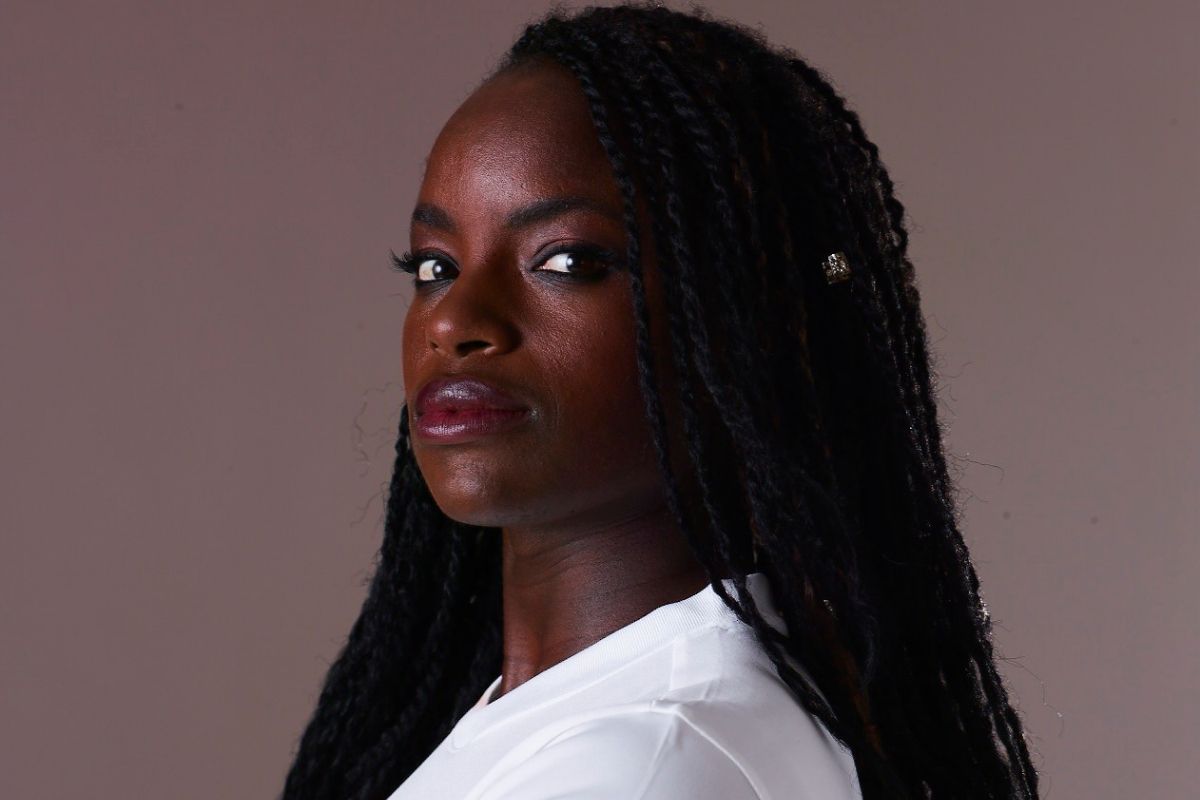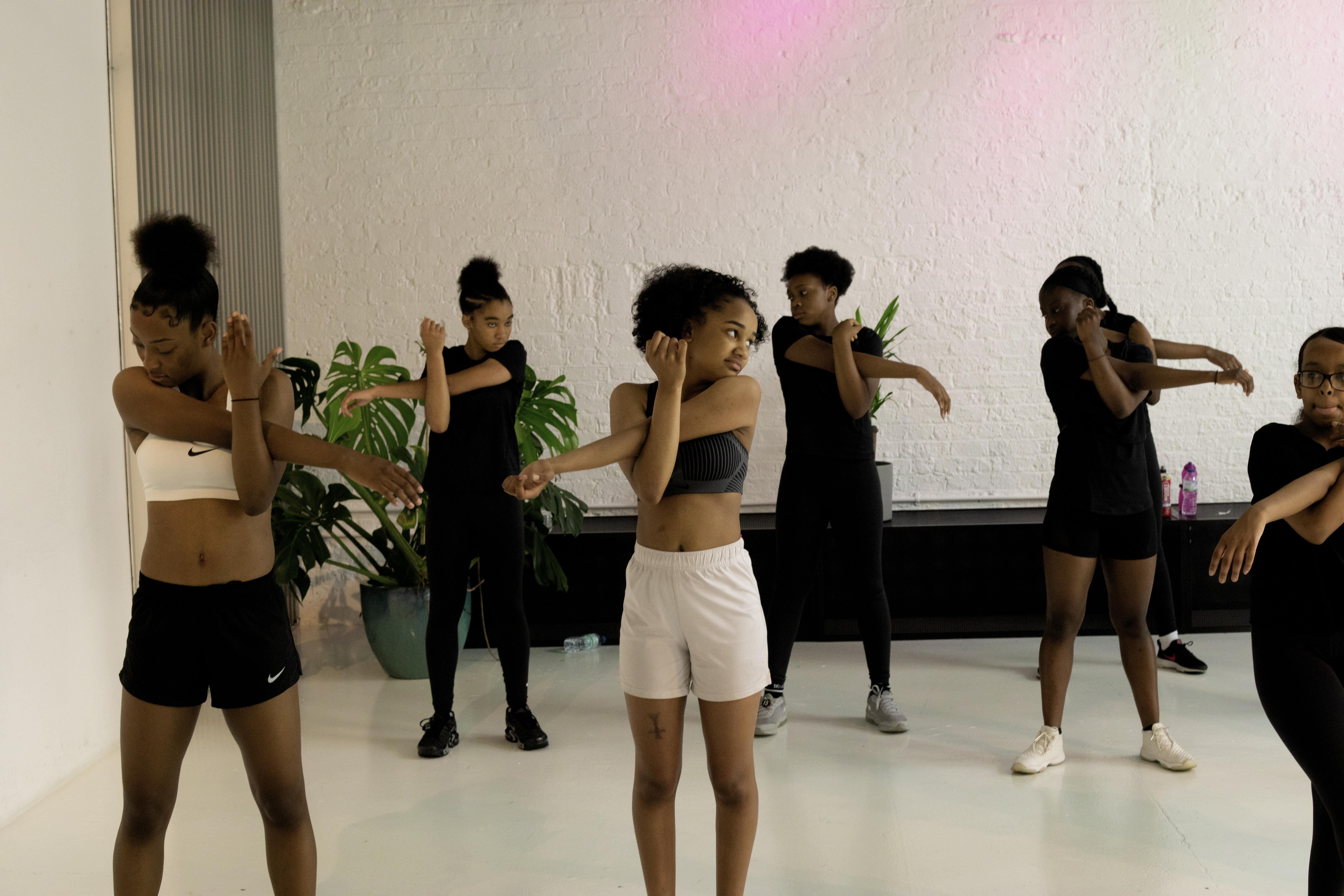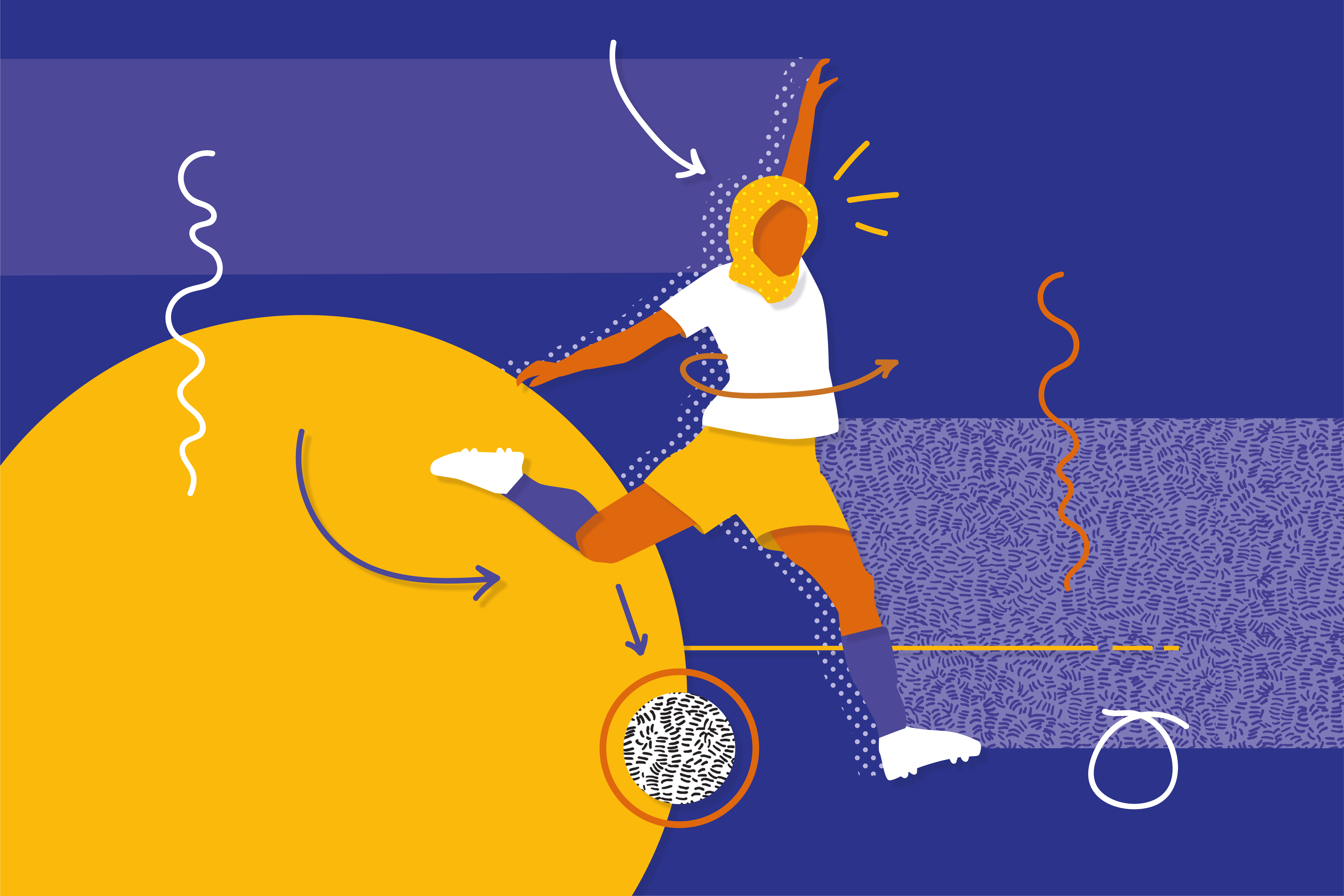
Photography via Twitter / Nikita Parris
The atmosphere at Nice in France, where England and Scotland faced off in their first respective matches of the Women’s World Cup 2019, was quietly content. But buzzing somewhere in the near distance were the nerves of Nikita Parris, England’s show-stopping forward, and the only black player on the pitch that day.
She told the BBC that it was the “first time” she had ever experienced butterflies before a match. “But ultimately I stuck with myself and thought – what two things can you bring to the game today? That’s passion, and drive, and all the rest came for me.”
Walking up and into the curved, glasshouse-like Allianz Riviera stadium, which sits facing a picturesque climb of trees, villas and swimming pools, Scottish supporters thronged around, decked out in blue-green tartan kilts and face paint, while many of the women and girls wore the ultra-femme pink away kit (and a full face of makeup and curled hair). English supporters were confident, if more subdued, in reds and whites.
This wasn’t a diverse crowd, but it was pleasant, and as someone who grew up in Scotland, I know how much was at stake in this first match. One man was wearing a Scottish flag draped over his back with “Yes” written on it. The Scottish national anthem, which features lyrics about sending the English home, was sung with vigour. In the morning, Nicola Sturgeon (Scotland’s nationalist first minister) had been spotted sunbathing on the roof of a local hotel. According to the Guardian, she was instrumental in helping part-time Scottish players be given sabbaticals from their day jobs so that they could train for the cup.
So even though it was predicted by some that Scotland would be smashed (England are ranked third while the Scottish team rounds out the twenties), for political reasons apart from anything else, there was assurance that the Scots would put up one hell of a fight.
“Nikita Parris’ penalty was emotional, England’s first goal of the world cup, scored by someone who was left out of selection in 2015”
As the match kicked off with surprisingly few people filling out the stands, England’s eminence wasn’t immediately apparent. The match started slow for their side, Scotland immediately went on the attack. But after an arguably controversial handball in the box, where Scotland’s Nicola Docherty threw out a hand which touched the ball, England began to shine. And this was in no small part down to Nikita – the former Man City player (winners of the FA Cup Final this year), who is set to make a move to play for France’s Lyon in the coming 2019/20 season.
It was Nikita who was called up to take the penalty – a precise, powerful shot to the right of the goalie’s outstretched hands that careered hard into the back of the net. After the pen she celebrated with vigour, pounding her chest and jumping into the arms of her teammates on the sidelines. It was emotional, England’s first goal of the world cup, scored by a teammate who was left out of selection in 2015.
Important beyond this because she, as a black woman, makes up one half of the team’s ethnic diversity – the only other black player is defender Demi Stokes who we didn’t see on pitch that evening. The penalty was only the start of a glimmering show of her prowess. She danced and slid through her opponents with the lightest touch on the ball – producing a nutmeg of real class and a pace that put defenders to shame.
Even her boss, England manager Phil Neville, has said that he believes that Nikita could become one of the best in the world. “Nikita is an example of the work England and Man City have done,” he said to the BBC. “We’ve challenged them 16 months ago to be best players in the world in their position. We’ve seen a player develop from being a really good WSL player to signing for the best team in the world.”
Beyond her footballing, what we know about Nikita already is that she’s set up an academy, NP17, to help young people and students in her hometown of Liverpool, that she admits to having had a bit of a temper on pitch in the past but has cooled with age, that her half sister is Natasha Jonas, the first British woman to box at the Olympics, and that she sweetly replies to young fans of hers on Twitter. We can’t wait to see what she does next in the world cup and beyond.









